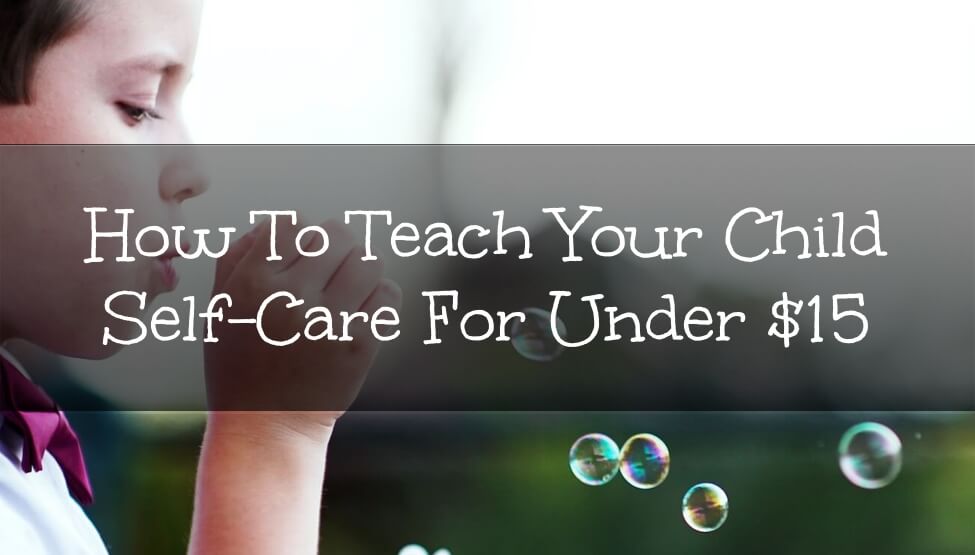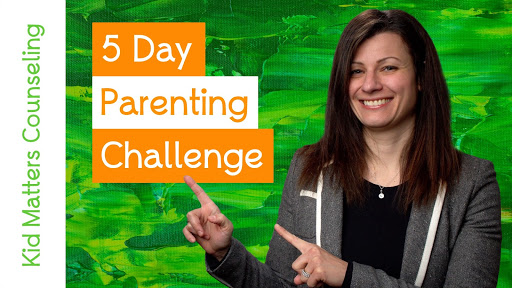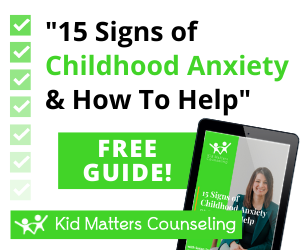Responding to every need a child has is impossible, and yet it is difficult to watch a child experience any kind of difficulty. Children (and adults) have physical, emotional, spiritual, intellectual, and relational needs.
The desire to nurture started with the birth of the child. Parents do their best to meet as many needs as they can in order to promote healthy development, and then as the child gets older the goal shifts from desiring to meet all needs to teach the child to meet their own needs: engaging in effective self-care practices.
I am going to share with you one of my favorite activities that you and your child can do together, promoting education about different types of self-care activities while setting up a tangible outlet for self-care.
The Dollar Store Self-Care Bag
How to:
Step #1) Head to a dollar store with your child and bring up the idea of self-care and how it is helpful to have tools to meet our needs as they arise.
Step #2) Describe each area of self-care to your child and let your child choose two things that they believe would help them when the need arises. If they ask you to decide for them or you feel the urge to direct their choices, pause, and then give them encouragement that you think their choice will be great.
Physical self-care: Anything that has to do with physical well being.
Kit Ideas: healthy snacks, toys that promote movement, bubble bath supplies, a fidget tool, or a back scratcher.
Emotional self-care: Naming, accepting, and expressing a wide range of emotions while not acting out towards others.
Kit ideas: a sketchbook for drawing, journal, watercolor paint, a stuffed animal for cuddling, or a blanket for snuggling.
Spiritual self-care: Whether you are religious or not, this is the act of acknowledging and contemplating our spiritual side/our existence.
Kit ideas: Nature books, religious books, or yoga-related tools.
Intellectual self-care: engaging in critical thinking and creativity.
Kit ideas: Supplies for building something, a word search book, clay, or a puzzle.
Relational self-care: healthy interactions with family, peers and potential new friends.
Kit ideas: a two-player game, nail polish to share, note cards for writing letters to loved ones, or a box of brownies to make with someone.
Step #3) Pick out a box or bag that will fit all the new self-care tools.
If you want your child to learn to take care of themselves consider trying this fun activity to give them tangible tools for self-care. Instead of trying to meet all of your child’s needs, teach them how to take care of themselves and watch them develop and learn to take ownership over their health.
Photo by Andre Hunter on Unsplash

Keri Sawyer
Child Therapist | MA
Kid Matters Counseling has trained therapists ready to help both kids and parents walk through the tough moments in life.
End the frustration & the confusion and let's work together! SCHEDULE APPOINTMENTNew Clients Call: (855) 586-1802
Current Clients: (855) 543-7687
Ask Us Anything!
We help anxious kids and frustrated parents. We serve Hinsdale & the Western Suburbs of Chicago.
Made with ♥︎ in Hinsdale, Illinois for Chicago
Built By Brand Your Practice.
Kid Matters Counseling, P.C. DISCLAIMER: This website and blog are for informational, educational and general discussion purposes only. It is understood that no guarantee or warranty arises from the information provided, discussed or commented upon in this website and blog nor does it constitute legal or other professional advice on any subject matter. Access to this website and blog is voluntary and at the sole risk of the user. If you think that you have a medical emergency (including clinical), call your doctor or 911 immediately. A licensed medical professional should be consulted for diagnosis and treatment of any and all medical conditions. While the information contained within this website and blog is periodically updated, no guarantee is given that the information provided is correct, complete, and/or up-to-date. See our complete Privacy Policy and Terms of Service.



